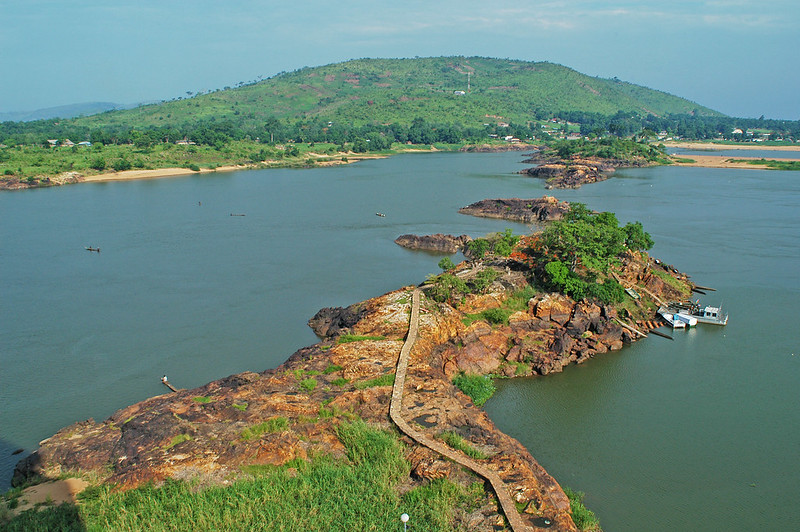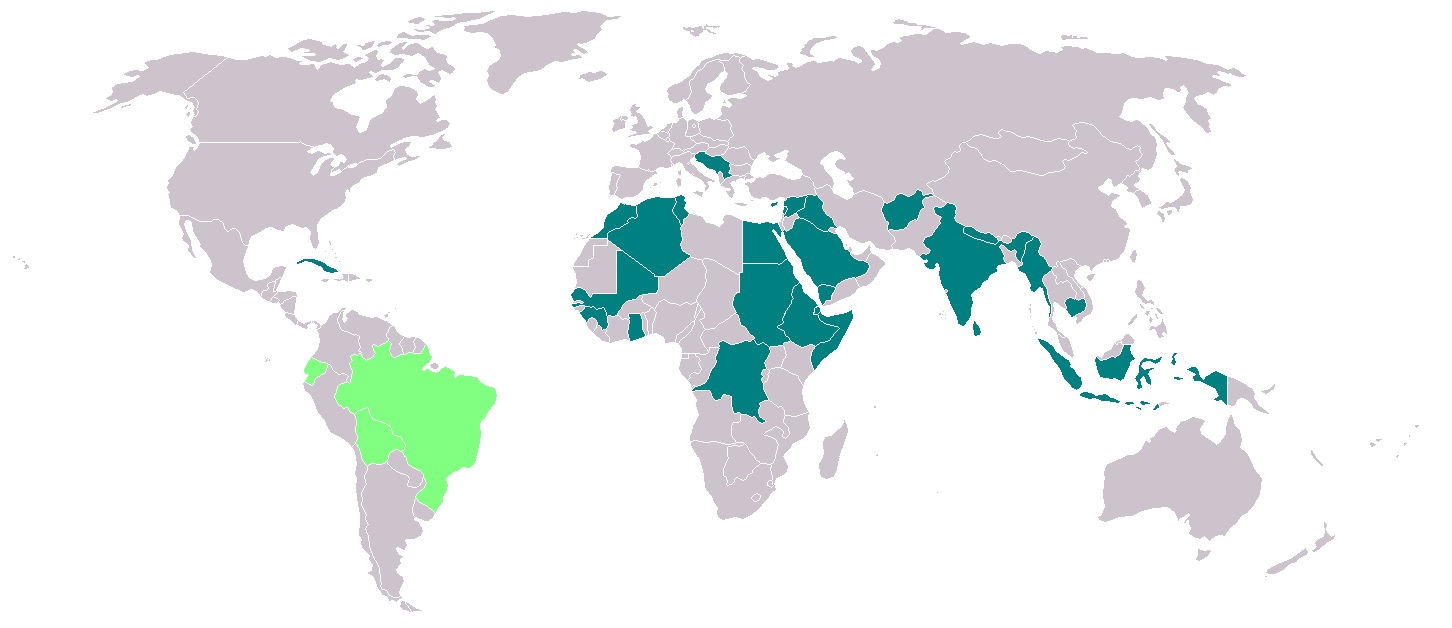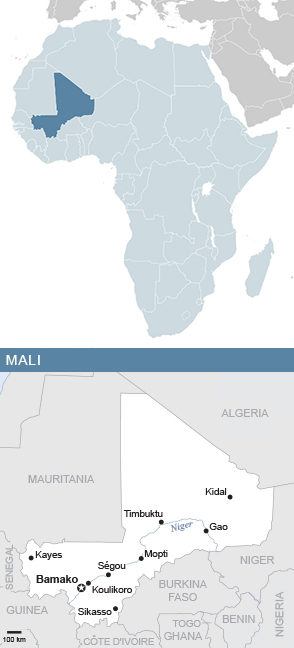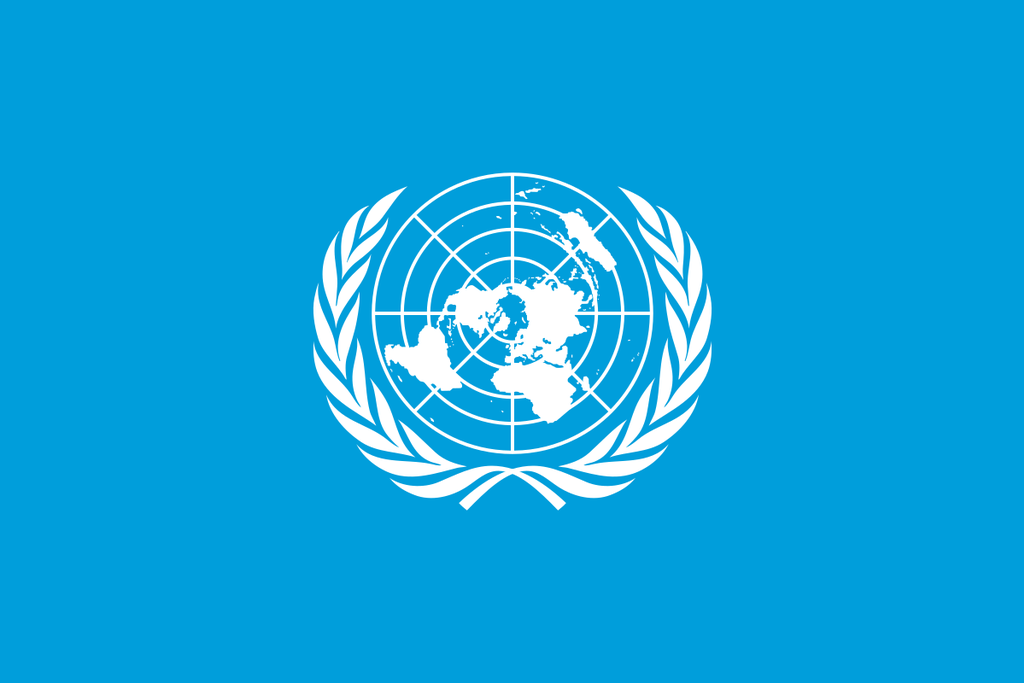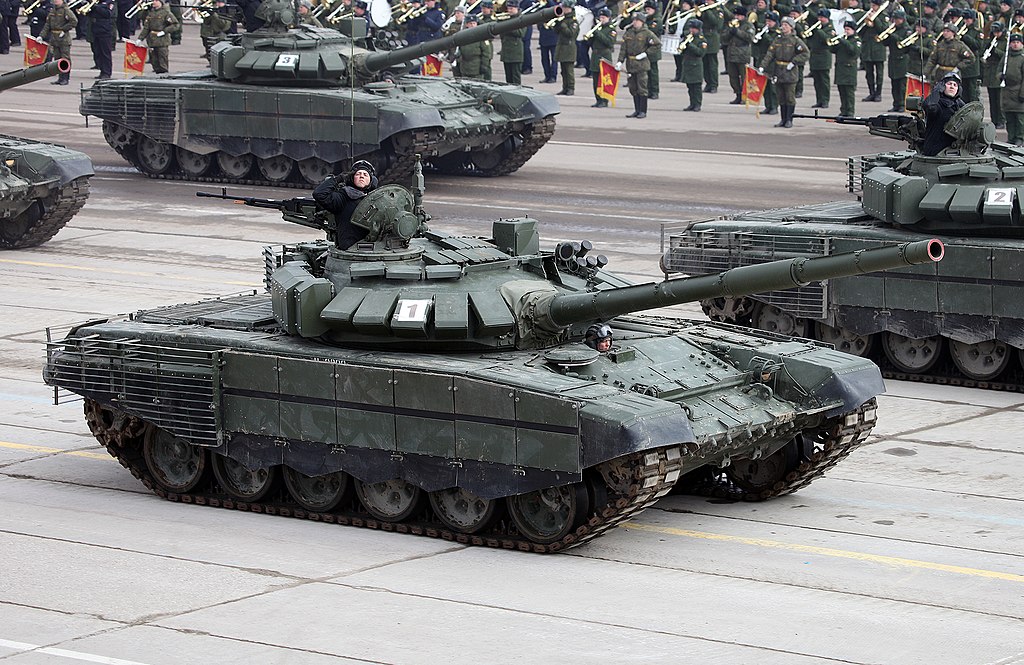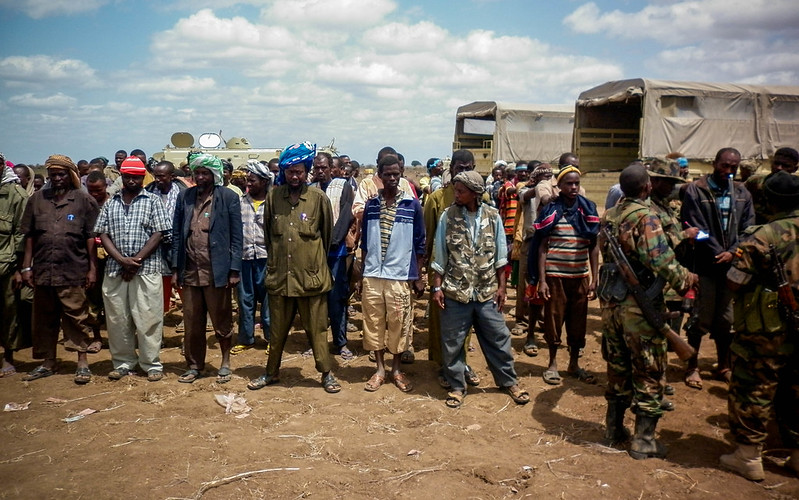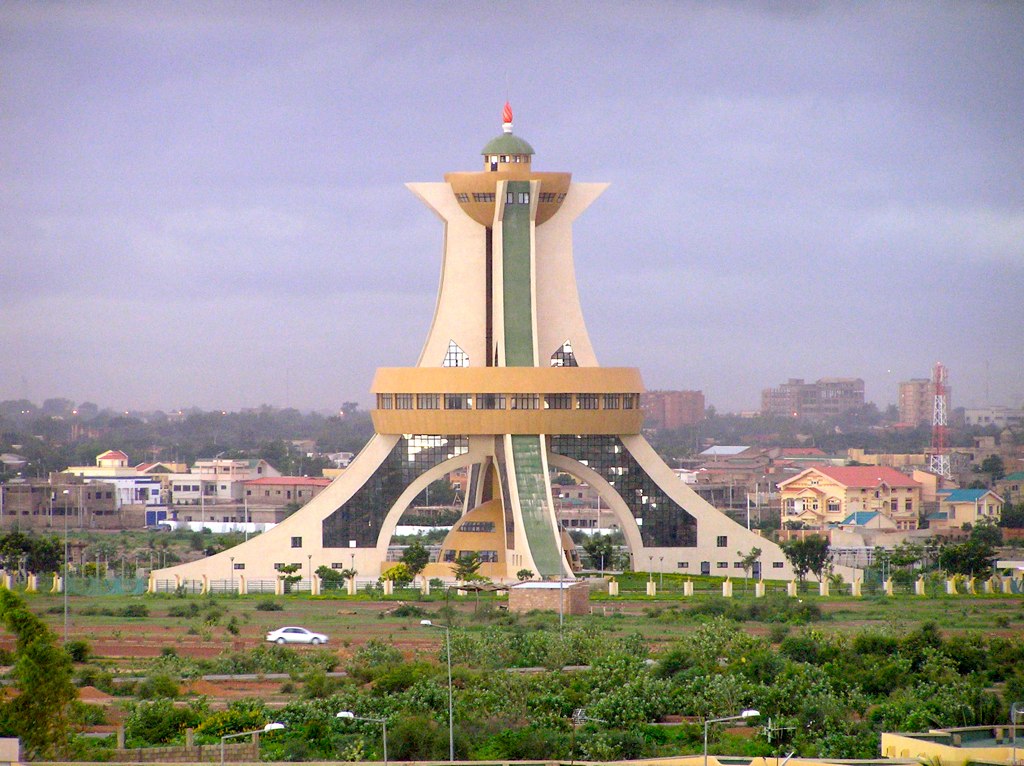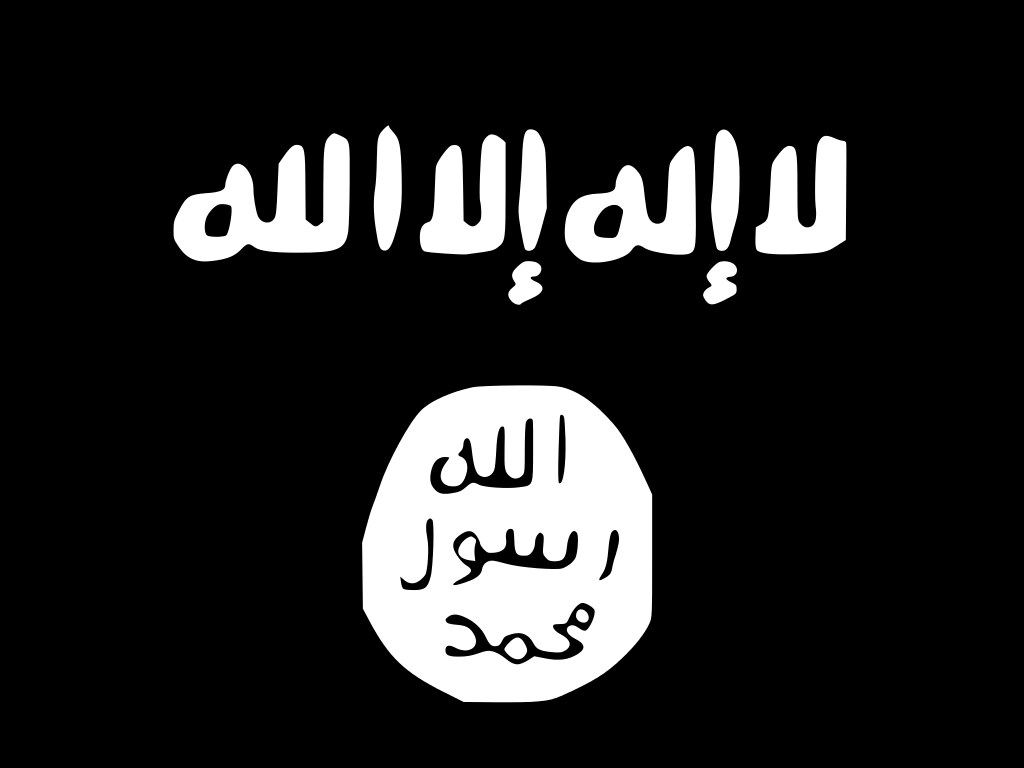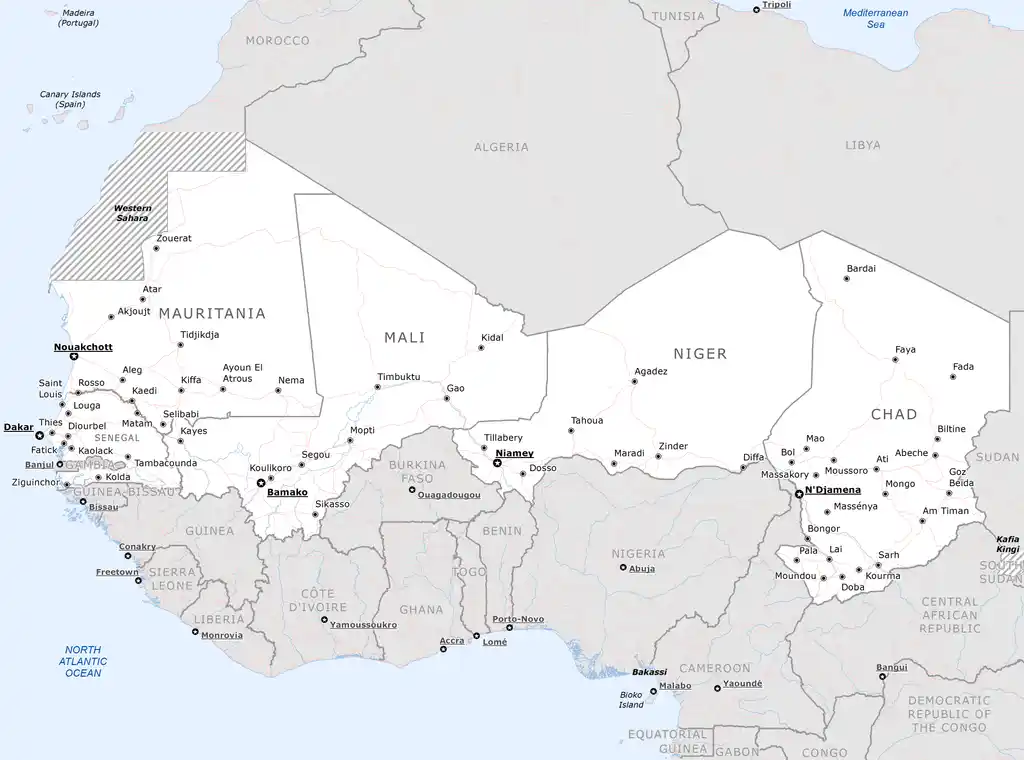
Map of West Africa.
“AQIM considers it a victory that French troops withdrew from both Mali in August last year and Burkina Faso in February 2023, calling it a vindication of 20 years of jihad in the region.”
In what has been hailed as a groundbreaking interview, France24 journalist Wassim Nasr was recently granted an interview with Abu Obeida Youssef al-Aanabi, the head of al-Qaeda in the Islamic Maghreb (AQIM). AQIM, which has been an al-Qaeda branch since 2006/2007,[i] is also the parent group of Jama’a Nusrat ul-Islam wa al-Muslimin’, which has contributed to the profound uptick in jihadist violence in the Sahel region of West Africa in the past five years.[ii] The interview, described in the text and published as a video via France24, offers unparalleled insights into AQIM’s current worldview. In the interview, al-Aanabi claims that one of the group’s greatest successes has been to help precipitate the withdrawal of most French military forces from the wider Sahel over the past two years, calling it “vindication of twenty years of jihad in the region.” Moreover, when asked about AQIM’s plans to attack the French homeland, al-Aanabi relayed that the group has no plans to do so, noting frustration that Western countries failed to understand that its qualms against France primarily stem from the latter’s activities in West Africa. He also stated his opinion that the Sahel is currently “the epicenter of jihad,” and that there were no limits to AQIM’s expansion. Finally, al-Aanabi noted that the group is at war with the Islamic State in the region and views the entrance of Russian Wagner mercenaries as being equally colonial as the French presence.
Sources:
Nasr, Wassim, “Le chef d’Aqmi, Abou Obeida Youseelf al-Annabi répond à 17 questions de France 24 (The head of AQIM Abou Obeida Youseelf al-Annabi responds to 17 questions from France 24),” France 24, (centrist state-owned French news oulet), 6 March 2023. https://www.france24.com/fr/afrique/20230306-le-chef-d-aqmi-abou-obeida-youssef-al-annabi-r%C3%A9pond-%C3%A0-17-questions
Algerian Islamist Abu Obeida Youssef al-Aanabi, the current leader of al Qaeda in the Islamic Maghreb (AQIM), granted an exclusive interview to FRANCE 24 in which he officially confirmed his group is holding French journalist Olivier Dubois, who was kidnapped in Mali in 2021, and discussed the role of jihadism in the Sahel….
When asked whether AQIM was planning attacks in France, al-Aanabi said his group’s dispute with France was limited to local issues in the Sahel and wider Africa. He went on to criticise Western leaders for failing to acknowledge that AQIM’s interests were exclusive to Africa.
He said AQIM considers it a victory that French troops withdrew from both Mali in August last year and Burkina Faso in February 2023, calling it a vindication of 20 years of jihad in the region. But Nasr points out that the French withdrawal was due to friction with the Malian junta as well as the arrival of Russian mercenaries. Al-Aanabi said the increasing presence of the Wagner Group was no better, calling them yet another colonial force.
Al-Aanabi touted the success of AQIM’s recruitment strategy in the Sahel, describing the region as the “epicentre” of jihad today, according to Nasr. Moreover, he said, there are no limits to the group’s possibilities for expansion. Al-Aanabi went on to say that AQIM is essentially at war in the Sahel with the Islamic State group, whom he views as “deviants”. Al-Aanabi has been on the US watchlist of “international terrorists” since September 2015.
Notes:
[i] For more on global reactions to the death of the leader of al-Qaeda, Ayman al-Zawahiri, in July 2022, see: Jason Warner, “Global Reactions Vary After Death of Al-Qaeda Leader Al-Zawahiri,” OE Watch, 09-2022. https://community.apan.org/wg/tradoc-g2/fmso/m/oe-watch-articles-2-singular-format/425695
[ii] For more on the nature of the Sahel as an epicenter of global terrorism, see: Jason Warner, “Coastal West African States Brace for Wave of Terrorism from the Sahel,” OE Watch, 10-2022. https://community.apan.org/wg/tradoc-g2/fmso/m/oe-watch-articles-2-singular-format/428040; Jason Warner, “African Leaders, UN See Terrorism in the Sahel as Dire,” OE Watch, 11-2022. https://community.apan.org/wg/tradoc-g2/fmso/m/oe-watch-articles-2-singular-format/429303; Jason Warner, “Mali Defends Reliance on Russian Counterterrorism Assistance,” OE Watch, 03-2023. https://community.apan.org/wg/tradoc-g2/fmso/m/oe-watch-articles-2-singular-format/437332
Image Information:
Image: Map of West Africa.
Source: https://commons.wikimedia.org/wiki/File:Sahel_Base_Map.png
Attribution: JRC, European Commission, CC BY 4.0

